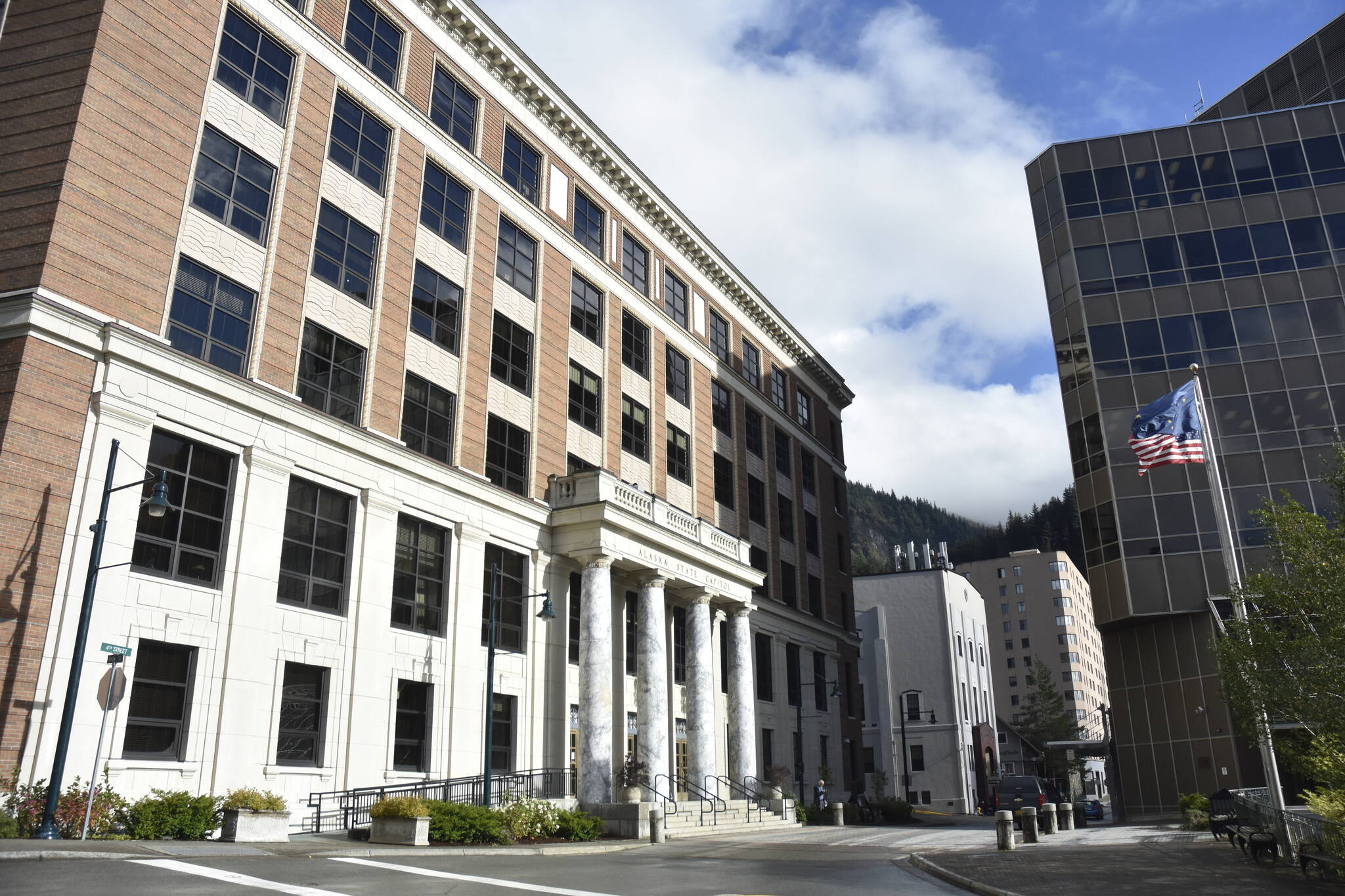By Becky Bohrer
Associated Press
A commission tasked with making recommendations for state legislative pay advanced a proposal Tuesday to raise the annual salary for Alaska lawmakers from $50,400 to $64,000 and place limits on the daily allowance lawmakers receive.
The State Officer Compensation Commission, as part of a 3-1 vote, called for capping the allowance known as per diem at $100 a day and making the allowance reimbursement-based. Currently, lawmakers who do not live in Juneau are entitled to session per diem of $293 per day.
The commission is charged with reviewing salaries and allowances at least once every two years. Members plan to meet Jan. 18 to finalize their recommendations, which would go to the Legislature and by law take effect next year unless a bill rejecting the commission recommendations is enacted within 60 days of their submission.
Jessica Geary, executive director of the Legislative Affairs Agency, told The Associated Press that typically “a receipt-based reimbursement system takes substantial staff time and may require an increase in staffing levels. We will want to see the full final proposal before responding definitively.”
Board members voting in favor of the recommendations were Kurt Olson, a former state representative; Carrigan Grigsby and Johnny Ellis, a former state senator who described his vote as reluctant. Ellis said he thought the proposed base salary of $64,000 was too low.
Member Lee Cruise voted against the recommendations. He previously proposed keeping the base salary at $50,400 and capping what could be claimed annually in per diem at $12,000.
On Tuesday, as debate wore on, he said if it were up to him, he would maintain the current base salary and cap per diem at $15,000 a year. But for the sake of negotiation said he would support raising the base salary to $64,000 if per diem was limited to $12,000 a year. Cruise said that approach to per diem would encourage lawmakers to finish their work within the constitutional window for regular sessions.
Cruise earlier said he was trying to keep lawmakers “accountable to the people” and conscientious of their expenses in Juneau.
The state Constitution allows for regular sessions of up to 121 days, with the potential to extend for an additional 10.
Per diem has been a hot topic in recent years amid drawn-out regular sessions and often multiple special sessions. The allowance is intended to help with costs related to living part of the year in Juneau. In each 2017 and 2021, there were four special sessions.
All the special sessions last year were called by the governor.
Sen. Jesse Kiehl, a Juneau Democrat, said most legislators want to “get the work done” and go home.
In comments submitted to the commission, he asked members to consider as part of their deliberations reimbursing legislators’ actual costs of lodging and a “reasonable rate” for meals and incidental expenses rather than a flat annual cap.
“If the commission only sets an annual dollar limit, it hands future governors a financial club to swing at the legislature by threatening to keep them in special sessions — paid out of their own pockets,” he wrote.
Alaska has a citizen legislature, meaning some lawmakers have jobs outside of being senators or representatives. Sen. Mike Shower, a Wasilla Republican, is a pilot.
In written comments, Shower said existing per diem is too high. He said he would propose a reduction “but in a way which allows regular citizens the opportunity to serve and not put their family into financial distress.”
Cruise at one point singled out Shower and said if Shower “wants to make more, he can stop being a representative and continue being a pilot and make significantly more.”

